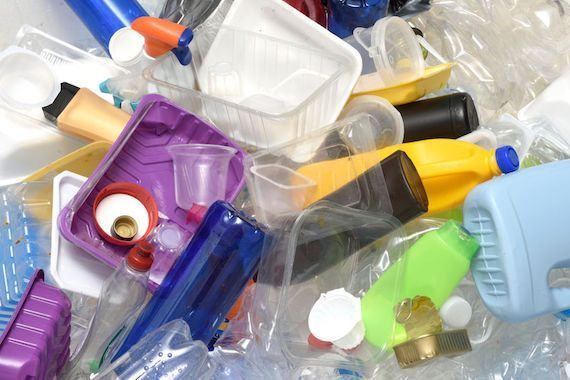Annual global market demand for PET plastic and polyester fiber will exceed $ 160 billion by 2022, as projected in the 2018 IHS Polymers Market Report.
Meanwhile, the company Loop Industries indicated that plastic pollution continues to be one of the environmental problems most covered by the media and local and global environmental non-governmental organizations.
Some of the main concerns associated with PET are the emissions associated with its production from non-renewable hydrocarbons and the time it persists in landfills and the natural environment.
Also, according to the company, there is a growing demand for action to address the global plastics crisis, which has been characterized by facts provided by leading academic and non-profit organizations.
In recent years, governments in North America and Europe have enacted and proposed laws and regulations requiring the use of minimal recycled content in packaging, which is the basis for the strength of this problem in the marketplace.
That’s why consumer brands are looking for a solution to their plastic challenge and are taking action.
Loop Industries
In recent years, major brands have seen significant commitments to close the cycle of their plastic packaging by transitioning their packaging to recyclable materials and incorporating more recycled content into their packaging.
Loop Industries is a company that owns proprietary technology that depolymerizes PET plastic and low-value polyester fiber for their base building blocks (monomers).
Thus, the monomers are filtered, purified and polymerized to create a virgin grade PET resin with the Loop brand, suitable for use in food grade packaging and polyester fiber.
For now, global consumer goods companies, apparel manufacturers, and retail brands have announced major public commitments and targets to transition to a circular plastic economy.
Business Cases
In January 2018, Danone’s evian brand bottled spring water was committed to a 100% recycled content package by 2025.
For its part, Coca-Cola committed in 2018 to an average recycled content of 50% in all its packaging by 2030.
In 2021, PepsiCo committed to 11 European markets moving key Pepsi-brand products to 100% rPET bottles by 2022, and in the United States all Pepsi-brand products will be converted to 100% rPET bottles by 2030.
Also, in 2020, L’OCCITANE en Provence pledged to include 100% recycled plastic in its bottles by 2025.
In 2020, L’Oréal Group committed to using 100% recycled or bio-based plastic in its packaging by 2030.
By 2025, Unilever aims to increase the use of post-consumer recycled plastic in its packaging by at least 25%.
For its part, Colgate-Palmolive sets a goal by 2025 to use at least 25% post-consumer recycled plastic in packaging.
Other cases
Nestlé aims to increase the amount of recycled PET used in all its brands globally to 50% by 2025.
Adidas Group aims to replace all virgin polyester with recycled polyester in all adidas and Reebok products where a solution exists by 2024.
Additionally, H&M aims to ensure that at least 25% of the plastic they use is made from post-consumer recycled materials.
Walmart aims to use at least 17% post-consumer recycled content globally in its private label plastic packaging and is taking steps to eliminate problematic or unnecessary plastic packaging and move from single-use models to retail models. reuse when relevant by 2025.
To conclude, Ikea’s ambition is that by 2030, all the plastic used in its products will be based on renewable or recycled material.
Regulations
Loop Industries said there is a growing policy and regulatory environment to encourage a reduction in the production of virgin plastic based on fossil fuels and a minimum recycled content in packaging imposed by various governments.
For example, on July 21, 2020, the European Union announced a new tax on plastic waste effective January 1, 2021.
This tax will have a rate of € 800/ton on non-recycled plastic containers.
In the UK, a new £ 200/tonne tax will apply to UK produced or imported plastic packaging that does not contain at least 30% recycled plastic, starting in 2022.
Meanwhile, a California law enacted on September 24, 2020 requires plastic bottles to contain at least 15% post-consumer resin by 2022, 25% by 2025, and 50% by 2030. The growing regulatory environment is expected to increase even further. plus the demand for recycled PET plastic.
![]()

